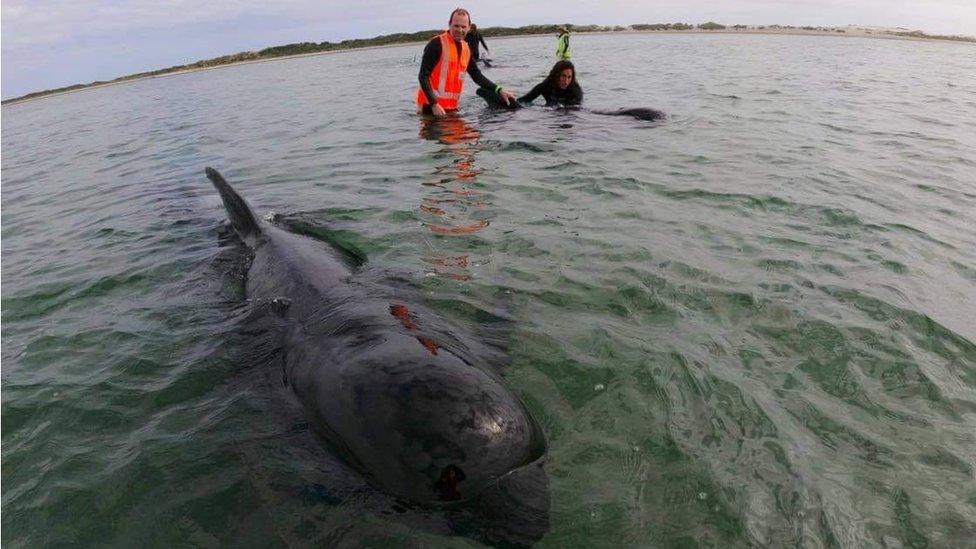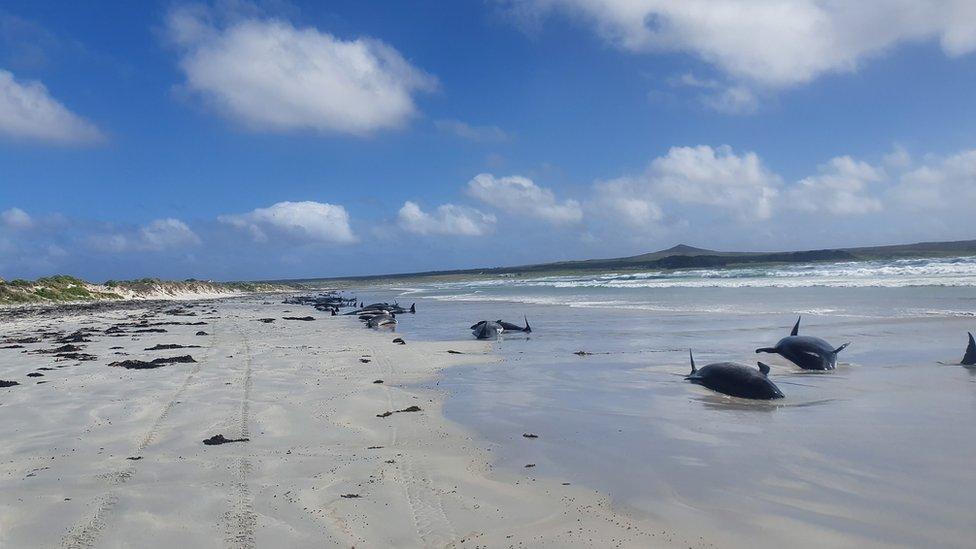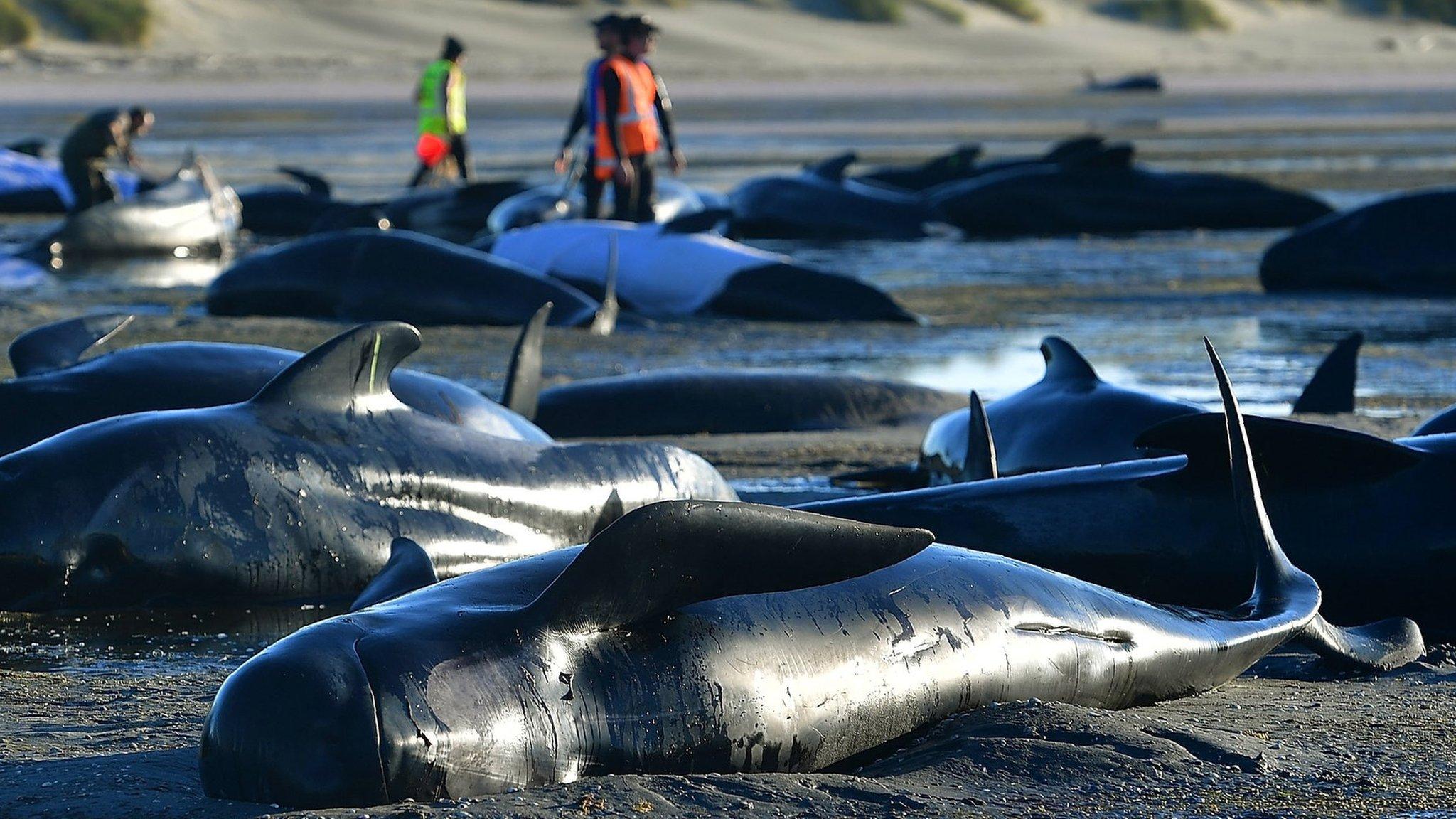New Zealand: Pilot whales refloated at stranding spot
- Published
A group of 50 volunteers had to help push 28 whales back into the water
Rescuers have successfully refloated 28 pilot whales on a notorious New Zealand beach where they had repeatedly beached themselves.
The long-finned pilot whales were part of a pod of around 50 first found on Monday at Farewell Spit, known for its mass strandings.
At least 15 from the pod have died.
However, the surviving whales, who were rescued twice, have remained close to shore and could beach themselves again, wildlife officials said.
"The live whales haven't stranded overnight, so it's looking like success right now. We're using the phrase 'cautiously optimistic'," Daren Grover, general manager of animal rescue charity Project Jonah, told news agency AFP.
Some 40 whales were pushed out to sea on Monday evening, but they swam back ashore by the next day.
A group of 50 volunteers then had to help push the 28 survivors back into the water for a second time.
"The beaches have been checked all the way along Farewell Spit and there's no sign of live whales ... So far, so good," Mr Grover said.

Rescuers successfully refloated 28 pilot whales in New Zealand's Farewell Spit
Farewell Spit, a 26km (16 mile) hook of sand that protrudes into the sea, has been a frequent site of strandings, although scientists are unclear why.
One theory is that the spit creates a shallow seabed in the bay which interferes with the whales' sonar navigation systems.
The area has seen at least 10 pilot whale strandings in the past 15 years. The most recent was in February 2017, when almost 700 of the mammals beached, resulting in 250 deaths.
It is not fully understood why whales became stranded but pilot whales are known to be more prone to getting beached. They are not considered endangered, although exact population numbers are not known.
Why do whales get beached?
Related topics
- Published25 November 2020

- Published30 November 2018
